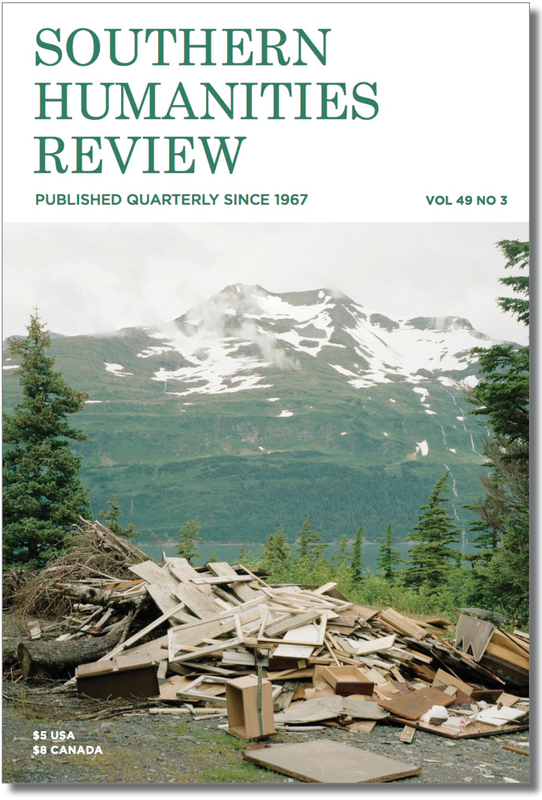|
Vertical Divider
My father spent six months in a box in my closet. He wanted his ashes scattered, so we didn't get an urn. The funeral home put him in this flimsy, white cardboard box, like the kind you get from the bakery except it was labeled with a sticker that read: CREMAINS OF THOMAS A. McMYNE, #4719. It went straight from the hands of the stone-faced man at the funeral home to the passenger seat of the car my father left me, where it sat—white and sharp-cornered—for the duration of the drive home, before I put it on the top shelf of my walk-in closet, all the way at the back.
I wouldn’t look inside for months. Every morning, as I wandered out of the kitchen with my coffee before work, I found reasons to put off getting dressed. Would you look at that hummingbird zipping around the empty feeder out the window? My father always kept filled. I should fill it. Where’s the cat food? Are we out already? I should feed the cats. When I finally made my way back into my bedroom each morning, I would take my time at my dresser, choose my socks carefully, and slowly run a brush through my hair. My jaw would clench as I thought about entering the closet. I averted my eyes as I went in, to avoid catching a glimpse of the box. After a few weeks of this, I moved the box to the closet in the foyer, where I wouldn’t have to think of it so often. The foyer became haunted for me, a ghostly place I never went. I moved through the months after my father’s death like an insomniac, operating on muscle memory and caffeine: This is when you get up for work. This is how you make coffee. This is how you talk to the students in your classroom. Just beneath the surface of my conscious thoughts, always, always, was the sound of the nurse’s voice when she called to tell me my father had taken a turn for the worse, the sinking sensation in my stomach, the cold feeling of the phone in my palm. If I was very careful, I could swim through the hours of my teaching day without that moment pulling me underwater. I could live in the sensations of now: the warm, white froth of my homemade espresso, the heat of the spring Louisiana sun on my arms as I drove to work, the laughter and chatter of my students as we discussed the stories they read the night before. At first, I was relieved when summer came—despite the wet heat, the rain, the weeds that were already overtaking the garden and yard—because I no longer had to fight so hard to stay in control. I had moved in with my father when he got sick to help take care of him, and every corner of my childhood home held memories. Each time I looked at the kitchen table, I half-expected to see him sitting beside the window, drinking coffee, reading the paper, his red hair bright over his customary black T-shirt, his glasses round and glinting in the sun, a cigarette in hand. When I passed the front window, I would remember the time I caught him spying on the new neighbors with his “bird-watching” binoculars. I would see him putting a record on the turntable in the den, a beer in his hand: Dylan, Zappa, the Stones. Even the couch, which he never used when he was well, now held the memory of him watching Law & Order after he got too sick to do much else. Every time a memory struck me, it knocked me off balance. I would stand there, eyes open, remembering, unable to pull myself away from the ghost I saw in the empty house. The summer stretched out before me like the Gulf. I rearranged furniture. I went out at night. I knew I could only swim so far. One morning, when I couldn’t bear it any longer, I walked into the foyer—my boots echoing on the tile floor—opened the closet, and stared up at the box. There it was, above the rows of sweaters and raincoats, atop a teetering stack of shoeboxes full of God-knows-what: that square of white. I was surprised at its weight when I took it down. It was heavier than I remembered. Not as heavy as you’d expect for the remains of a human being, but heavy for its size, which was maybe a cubic foot. Against the oak of the kitchen table where I set it down to inspect it, the cardboard looked whiter than white. It was morning, the house empty. Light shone through the kitchen window. The hummingbird feeder hung, empty, from the eave. READ THE REST OF THIS ESSAY IN VOL 49.3MARY McMYNE was born and raised in south Louisiana. Her fiction has won the Faulkner Prize for a Novel in Progress and a grant from the Sustainable Arts Foundation. Her debut poetry chapbook, Wolf Skin, won the 2015 Elgin Chapbook Award. Her work has appeared in journals such as The Chattahoochee Review, The Pedestal Magazine, Ninth Letter, Painted Bride Quarterly, and The Los Angeles Review. She teaches creative writing at Lake Superior State University in Michigan.
|
VOLUME 49.3
|
CURRENT ISSUE
|
CONTACT
|
DEPARTMENT OF ENGLISH
|



